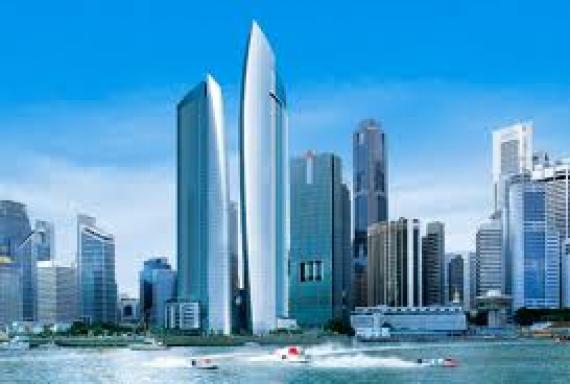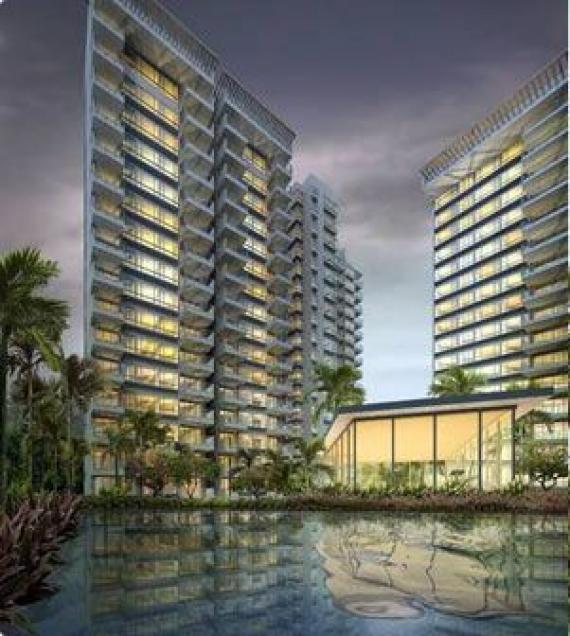
Recently I visited a friend’s place – a 4-room HDB flat located in the northern part of Singapore. As a real estate agent, I can’t help but let the estimated valuation run in my head. Based on when he purchased it – he likely have paid about $200K then.
And then I started thinking about the liability of a housing loan that is only about $200K.
It is a relatively small amount and can be paid off easily – my friend probably have paid it off and is enjoying a worry-free lifestyle of no large loans looming over his head.
Life is easy and uncomplicated. Right?
Hold on to this story – where being comfortable and living worry-free without fear of large loans is an acceptable norm.
We will revisit this later.
The Acceptance of HDB Depreciation
When I first started writing about the potential depreciation of HDB flats more than 2 years ago, I remember the vehement rejections and comments I received.
But this past year in 2018, I have noticed the shift in the words that people are using.
Whenever I meet HDB owners nowadays, there seems to be acceptance regarding their flat valuation. They understand that their old flats will be unable to command the high prices they want.
It is very interesting to note this subtle shift in behaviour – we no longer need to discuss on what will happen to their HDB value in the future.
Most of them have accepted that the value will no longer be like what everyone thought was in the past.
The Acceptance That Private Property Prices Will Not Go Down
Cooling measures has been in place since 2013. And yet for the past 5 years, cooling measures has only been tightened and not loosened.
Property developers are buying land at new record prices. Buyers are still purchasing units despite increasing PSF prices.
Waiting for prices to come down? The likelihood of that happening seems remote.
Those waiting in the sidelines? They are tired of waiting and are entering the market.
What Seems Expensive Now Will Seem Cheap Later
I came across this old article – published on Oct 2013.
In the article, it shared the 10 most profitable new launches since 2000. It is very interesting to walk through memory lane – looking at the PSF prices then and now.

The Sail @ Marina Bay
Average capital gain: 96.75%
Average sale price: $1,873 psf
Average purchase price: $965 psf
Region: CCR
Launch Year: 2004
TOP Year: 2008

The Caspian
Average capital gain: 65.30%
Average sale price: $1,022 psf
Average purchase price: $619 psf
Region: OCR
Launch Year: 2009
TOP Year: 2012
It’s amazing, isn’t it? These were probably the comments uttered back then:
- “Who are the people who want to stay inside the CBD area?”
- “$9xx psf for a 99-year leasehold property? That is crazy!”
When these buyers initially bought their properties back then – they were likely struggling with the same question – “Isn’t the price high? What prices could I possibly sell at in the future?”
Today a new launch in the east – Parc Esta – is being launched at $1680 PSF.
Is it expensive now? Definitely.
Will it look cheap in the future? Who knows.
“Expensive” vs “Cheaper”
I mentioned this in my previous article – about how J-Gateway seemed so expensive during its launch in 2013.
Yet, those who bought the “expensive” J-Gateway then are doing very well today – sitting on potentially 6-figure paper profits.
Those who bought a “cheaper” resale Caspian unit – in 2013 are holding on to a property that did not appreciate much – even after 5 years.
Mental Burden or Future Planning?
Let’s revert back to the idea of holding a $200K housing loan. It is a very comfortable number, doesn’t bring about a huge mental burden and provides a very nice easy lifestyle.
Compare that to someone who owns a $1 million property and a $800K loan.
At the end of 30 years, both has a fully-paid up property. One party has a $300K HDB property while the other has a $1 million property.
Which would be a more preferable situation?
Is a large property loan a mental burden… or simply planning for the future?
Why Do People STILL Choose To Upgrade and Buy “Expensive” Properties?
The truth is this: A lot of people are getting used to the idea that buying a private property might be a better choice than holding on to a depreciating HDB flat.
This mindset shift on the ground is something I have noticed and confirmed by fellow colleagues.
There is also more certainty in terms of exiting from a private property investment through the en-bloc process as when compared to VERS.
There is a realization that while there is a mental burden of holding a large mortgage loan – the potential payoff of much larger capital gains is also an incentive.
It is realistic to expect 6-figure gains from private property due to its leveraged nature.
Beyond the incentive of potential large capital gains, there is another reason why people are still upgrading.
No Need To Tap Into Cash Savings
For some people, there is no need to tap into their cash savings. This is because they have enough unused funds within their:
- CPF account or their spouse’s CPF account
- Existing HDB flat
Through careful planning, purchasing a private property is possible without even touching their cash savings.
For some of them, we are also able to create a cash reserve fund that can cover their monthly payments for up to 5 – 10 years!
This is not suitable for everyone though – I will need to do a detailed financial assessment first.
Bought 2 Properties In 2015 – What’s The Update Now?
Last year, I updated regarding my client George who chose to buy 2 properties after upgrading from his Woodlands flat.
I recently did a review and we did some calculations. He can easily make a 6-figure profit – nett. This was after ALL the various costs have been added – we even included the seller stamp duty (SSD).
Right now he is holding on to the 2 properties awhile longer to monitor prices and wait for the SSD period to be over before he takes his next step.
Imagine the mental burden faced by George & spouse who had made that unusual choice to have not 1 but 2 mortgage loans.
But with the Proper Financial Plan, they forged ahead and are now on their way to reap the rewards.
Risk Mitigation via Insurance
For HDB owners who pay for their flat via CPF monies, they are protected by the Home Protection Scheme (HPS) – a mortgage-reducing term insurance that will take care of the loan in the event of death or TPD.
Similarly, for private property owners – there are available mortgage insurance products that takes care of your outstanding home loan and ensures your family continues to have a home, in the unfortunate event of death, total & permanent disability, or terminal illness.
Nothing Wrong with Staying in a $200K HDB Flat
To be clear, I am not saying there is something wrong staying in a HDB flat.
I am merely sharing that some people have successfully unlocked the value from their existing HDB flat and used those funds towards a property that has the potential to provide greater capital gains appreciation.
You might have a chance to upgrade stress-free with a well-organized financial plan. The financial burden might not even exist – I have encountered cases where owners need not even worry about monthly payments for at least 5 years.
Then, the only question left to ask yourself – Why am I NOT not proceeding to upgrade and taking action?
What is stopping me?
(This is the question you will eventually have to answer – either now or when you are approaching retirement in 20-30 years time)
Conclusion
More and more people are waking up to the idea of channelling their unused funds to a property that has the potential to perform better and provide better returns.
Isn’t it nice that as you pay down your property loan, it goes into a “bank account” that can give an interest that is higher than the inflation rate?
Of course, this is NOT possible for ALL private properties. There are some developments out there that I will not consider at all:
- due to its extremely high price that leaves no room for potential appreciation
- a location that is not linked to any future URA masterplans
- an exit strategy that will be difficult to execute
Again, this boils down to how you view your property – is it simply a place to stay or a potential future investment that can be realized into actual profits?
By concerning yourself regarding this issue, you are actually taking steps to secure and take care of your future retirement.
Your current residence is already your biggest purchase… so can it also be your biggest investment?
Keen to figure out whether you and your spouse are potential candidates to upgrade to private property without touching your cash savings?
I invite you to contact me to arrange for a complimentary financial assessment.



Leave a Reply